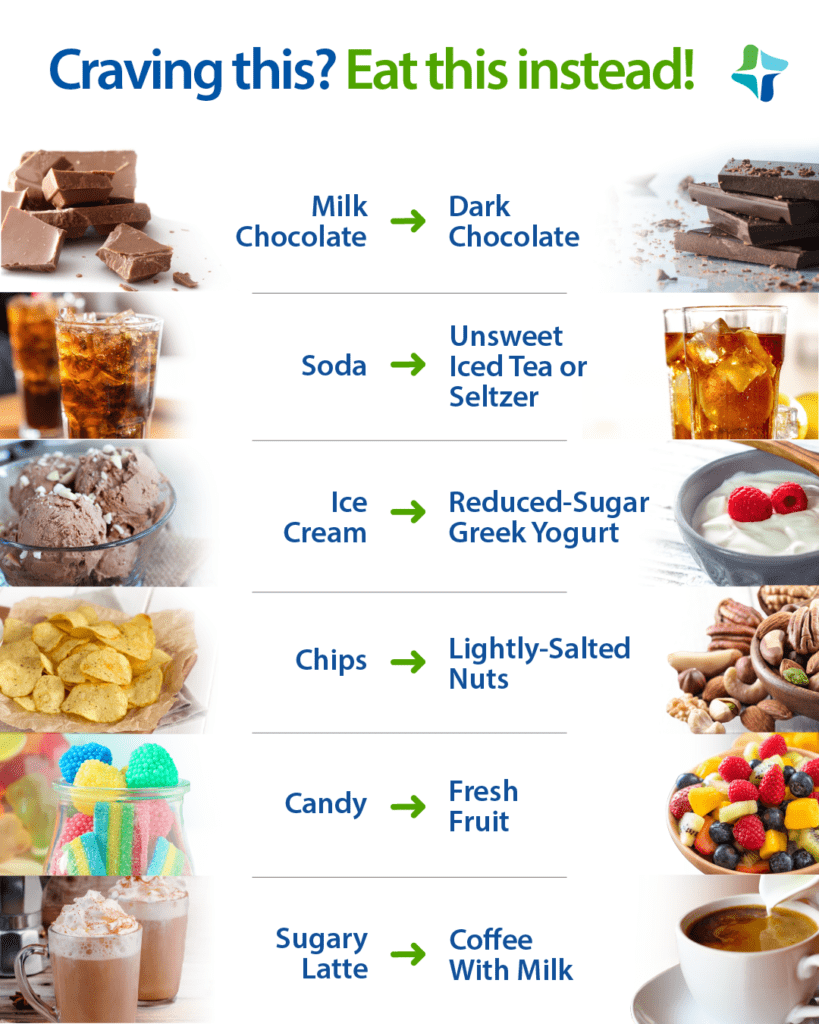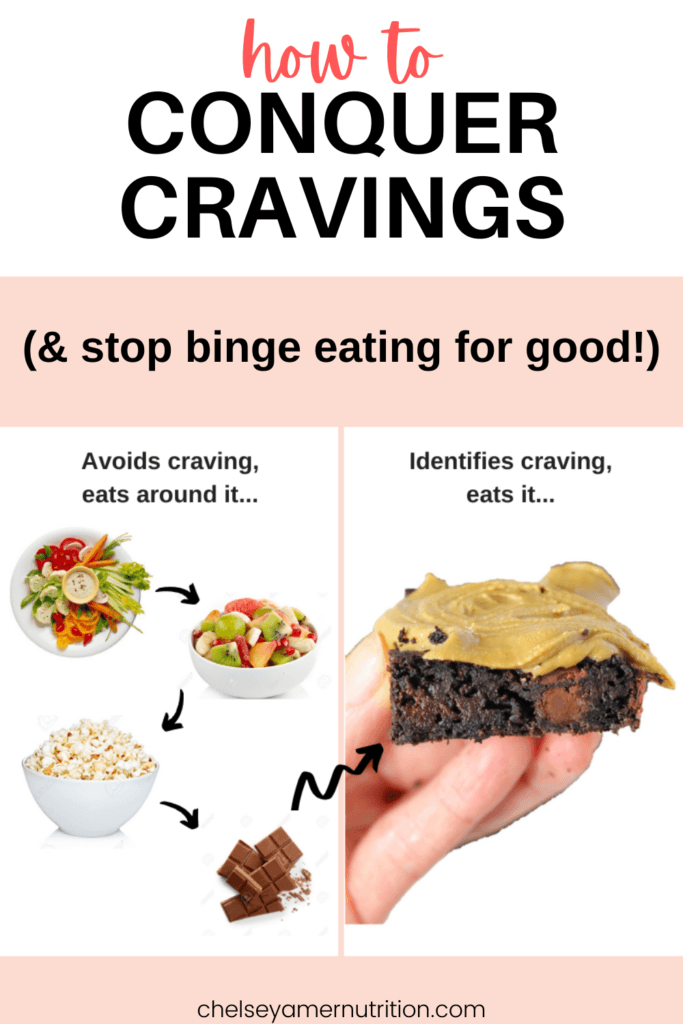Craving your favorite food can be a powerful force, but don’t let it derail your healthy eating habits. In this article, you will discover effective tips for handling those irresistible food cravings. From understanding the root cause of cravings to practical strategies for managing them, you’ll be equipped with the knowledge and tools to conquer those temptations and stay on track with your goals. So, next time a craving strikes, you’ll have the power to make informed choices and maintain a balanced and nutritious diet.
Understanding Food Cravings
What are food cravings?
Food cravings refer to intense desires for specific types of food, often leading to a strong urge to consume them. These cravings are often accompanied by a heightened sense of hunger and can be challenging to resist. Common examples of food cravings include cravings for sugary treats, salty snacks, or rich and indulgent foods like pizza or ice cream.
The causes of food cravings
Food cravings can stem from various factors, including emotional, psychological, and physiological triggers. Emotionally, cravings may be a result of stress, anxiety, or boredom. Some people use food as a way to cope with these emotions, seeking comfort and pleasure in the act of eating. Psychologically, certain foods may be associated with positive memories or experiences, leading to a desire to recreate those feelings. Physiologically, hormonal imbalances, nutrient deficiencies, or fluctuations in blood sugar levels can also contribute to food cravings.

Recognizing Triggers
Identifying emotional triggers
One of the first steps in managing food cravings is to identify the emotional triggers that may be causing them. Reflect on your relationship with food and observe whether certain emotions, such as sadness, loneliness, or frustration, tend to trigger cravings. Once you are aware of these triggers, you can work on finding healthier ways to cope with your emotions, such as engaging in activities you enjoy or seeking social support.
Identifying physical triggers
In addition to emotional triggers, there may also be physical factors that contribute to food cravings. Pay attention to your body’s signals and notice if certain physical sensations, such as fatigue or low energy levels, tend to lead to cravings. These signals may indicate a need for nourishment or a specific nutrient, rather than a genuine craving. Consulting a healthcare professional or registered dietitian can help identify any underlying nutrient deficiencies or physical triggers.

Managing Food Cravings
Distract yourself
When faced with a food craving, distracting yourself can be an effective way to redirect your attention and overcome the urge to indulge. Engage in activities that require your full focus, such as going for a walk, practicing a hobby, or engaging in a conversation. By shifting your attention away from the craving, you give yourself time for the urge to pass and reduce its intensity.
Practice mindfulness
Mindfulness techniques, such as deep breathing exercises or meditation, can help you become more aware of your cravings without judgment. By practicing mindfulness, you can observe your cravings without feeling overwhelmed by them. This awareness allows you to make conscious decisions about your eating habits, rather than succumbing to impulsive desires.
Use portion control
If you find it difficult to completely avoid the foods you crave, practicing portion control can be a helpful strategy. Allow yourself to enjoy a small portion of the desired food, savoring each bite mindfully. By practicing portion control, you can satisfy your craving without consuming an excessive amount of calories or compromising your overall dietary goals.
Keep a food diary
Keeping a food diary can be an effective tool in managing food cravings. By recording your food intake, cravings, and accompanying emotions, you can identify patterns and triggers that contribute to your cravings. Additionally, a food diary can help you hold yourself accountable and make more informed choices about your eating habits.

Making Healthy Choices
Stock your kitchen with healthy options
One of the key strategies for managing food cravings is to have a well-stocked kitchen of healthy options. Fill your pantry and refrigerator with nutritious and satisfying foods such as fruits, vegetables, whole grains, lean proteins, and low-fat dairy products. Having these options readily available makes it easier to make healthier choices when cravings strike.
Plan meals and snacks ahead
Planning your meals and snacks ahead of time can help prevent impulsive food choices driven by cravings. Set aside time to create a weekly meal plan, including balanced and nourishing meals. By having a structured plan in place, you can ensure that your meals and snacks align with your health goals and minimize the likelihood of succumbing to cravings.
Opt for high-fiber foods
Incorporating high-fiber foods into your diet can help manage food cravings. Foods rich in fiber, such as whole grains, legumes, fruits, and vegetables, provide a sense of fullness and satiety, reducing the frequency and intensity of cravings. Fiber also helps stabilize blood sugar levels, preventing the rapid spikes and crashes that can trigger cravings.
Stay hydrated
Dehydration can sometimes be mistaken for hunger, leading to unnecessary food cravings. Ensure that you stay adequately hydrated throughout the day by drinking plenty of water. By keeping yourself hydrated, you can reduce the likelihood of experiencing false hunger signals and curb unnecessary cravings.

Seeking Support
Sharing your goals and aspirations surrounding healthy eating with trusted friends, family members, or colleagues can provide you with valuable support. By vocalizing your intentions, you can gain encouragement and accountability from those around you. Moreover, these individuals may offer helpful tips, share their own experiences, or even join you on your journey towards managing food cravings.
Find an accountability partner
Seeking an accountability partner can significantly enhance your ability to manage food cravings successfully. This partner can be a friend, family member, or even a professional, such as a registered dietitian. An accountability partner can provide guidance, motivation, and support, holding you accountable for your actions and helping you stay focused on your goals.
Consider professional help
If food cravings persist and significantly impact your quality of life, it may be beneficial to seek professional help from a healthcare provider or a registered dietitian. These professionals can assist in identifying underlying causes of cravings, developing personalized strategies to manage them, and addressing any potential nutrient deficiencies or problematic eating patterns. With their expertise, you can gain a deeper understanding of your cravings and work towards long-term solutions.
By understanding food cravings, recognizing triggers, managing cravings effectively, making healthy choices, and seeking support, you can develop a comprehensive approach towards dealing with food cravings. Remember, it is essential to be patient with yourself and embrace a balanced and flexible mindset when it comes to your relationship with food. By implementing these tips and strategies, you can regain control over your cravings and move towards a healthier and more fulfilling life.

